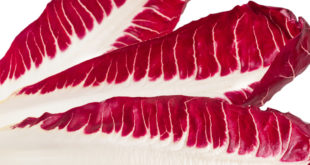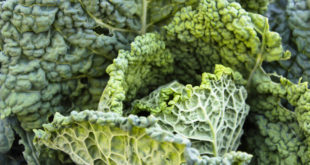- Apples. Apples will keep for about a week at room temperature and longer in the refrigerator. In a cold cellar, they can keep for several months. They give off quite a bit of ethylene (except for Fuji and Granny Smith), so keep them away from other produce, unless you want that produce to ripen quickly, such as hard avocados, pears or Hachiya persimmons.
- Bananas. Bananas such a long distance to get to us! Store them at room temperature and keep them away from everything else as they give off lots of ethylene and will speed up the demise of other produce (unless that produce isn’t ripe and you want to ripen it).
- Cherries and berries. Cherries, blackberries, blueberries, raspberries and strawberries turn quickly so ideally, eat them the day you buy them. If you must wait, store them in the refrigerator in glass containers or a cloth produce bag for up to about five days. Don’t cram them into giant jars or bags though or they’ll bruise. Wash and stem them just before you eat them. They don’t emit much ethylene.
- Cantaloupe and honeydew melons. Melons do best at 10°C, so store them in a cool area but not a cold refrigerator. If you need to store half a melon (with the rind still on), leave the seeds in and store in the refrigerator, face down on a plate to prevent exposure to air.
- Citrus. Store grapefruit, lemons, limes and oranges at room temperature for a couple of weeks. In the refrigerator, they can develop spots on the rind.
- Figs. Store figs in the refrigerator in a glass container in a single layer to prolong them. Don’t wash them until you’re ready to eat them.
- Grapes. Like most items in this list, these turn quickly. Store in a cloth produce bag and refrigerate for up to five days to prolong freshness.
- Kiwis. If they’re hard, store them in the refrigerator for up to a month and remove as desired to ripen. Once ripe—or if you bought them ripe—return them to the refrigerator for up to 10 days.
- Pears. Store at room temperature until ripe and them move to the refrigerator where they will keep for several days.
- Persimmons. Store both Hachiyas and Fuyus at room temperature. Eat Hachiyas when they have practically rotted. They taste astonishingly delicious at that point (before, truly disgusting).
- Pomegranates. Store these in a cool but not cold place. Store seeds in a glass jar or glass container in the refrigerator for a few days.
- Stone fruits. Highly perishable apricots, nectarines, peaches and plums will turn quickly so gobble them up while they’re fresh. If you buy them hard, store them at room temperature until ripe, then transfer to the refrigerator for up to several days.
- Watermelon. Keep these at room temperature. Cold temperatures can damage their flesh, resulting in pitting and loss of colour and flavour. Watermelons are ethylene sensitive, so keep them away from fruit that produce high amounts of ethylene.
Tags cooking tips
 bfc.green Promoting Green Lifestyle
bfc.green Promoting Green Lifestyle


